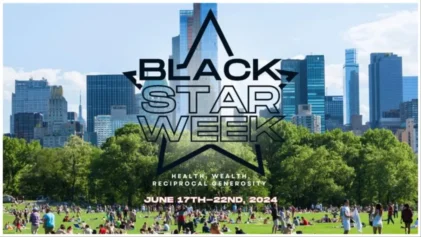Today is France’s second day with a new president in power: socialist François Hollande won a narrow victory with 51.5 percent. RNW asked young French Africans in Paris about their choices: did voters’ personal backgrounds play a role in choosing their country’s new president? It seems most Franco-Africans voted for the “less worse candidate.”
“I vote for Hollande. That’s a vote for change,” says Samba Doucouré, a 24-year-old student with Malian roots. “Nicolas Sarkozy wants us immigrants to leave France. He has a tendency to stigmatize people from the suburbs, the Muslims and the Africans. So I have developed a dislike for him.”
Koudiev Sidibé, a 23 year old of Liberian-Malian descent, was dissatisfied with both candidates and decided to cast a blank vote. “I can’t find myself in the candidates; I don’t feel represented in their ideas. Hollande doesn’t convince me and there’s actually little difference between him and Sarkozy. I want an honest candidate, someone who actually means what he says.”
Immigrants vote Hollande
Samba thought most Franco-Africans would vote Hollande. “Historically, immigrants have a greater tendency to vote for left-wing parties. We always have the idea that socialist parties care more about immigrants. Sarkozy described immigrants as ‘a problem’, making them responsible for the problems of France.”
It seems that Sarkozy is seen as the enemy of the immigrant. So are there pro-Sarkozy Franco-Africans?
“Yes, there are, but I think they are rare,” says Samba. According to his observations, some Ivoirians who are pro-Ouattara would probably vote Sarkozy, as the Ivory Coast president is supported by his French counterpart. “On the other hand, supporters of Gbagbo would definitely not vote for him.”
Sarko’s ‘unforgivable’ speech
For 25-year-old Rwandan student Jean-Claude Tuyishima, there is no difference between the two candidates when it comes to France-Africa relations. “Over the past decades, there have been left-wing and right-wing presidents in France; they all followed the same line.” Jean-Claude doubts if a left-wing president will change anything: “I hope that the relationship will be more human and equal.”
Power of the suburbs
In Clichy-Sous-Bois, one of many Parisian suburbs, a group of young immigrants known as the Association Collectif Liberté, Égalité, Fraternité, Ensemble, Unis (ACLEFEU), actively mobilizes the neighbourhood to encourage political involvement. “Over the last couple of weeks, we walked around the streets to make sure people would vote for their favourite candidate,” explains founding ACLEFEU member Mamadou Kanouté. “People must realize that they are as French as upper-class Parisians. They deserve to be heard.”
According to Kanouté, 70 percent of Clichy-Sous-Bois inhabitants voted in the first presidential round, compared to 30 percent in 2007. It was pretty certain that Hollande would win a majority. “In all our work, we had not one response from the right-wing party,” says Kanouté. “The socialist candidate Hollande came to see us three times, so naturally, we feel more heard by him.”
Pretentious
Jean-Claude doubts whether candidates actually listen to suburbians. “They all visit the suburbs, but it’s just pretentious, it’s part of their strategy, grasping as many votes as they can. But they don’t actually know us and they don’t know our problems.”
Koudiev thinks it’s more about their proposals. “I don’t vote as a member of the African diaspora, I vote as a student, an inhabitant of a certain city or religion. There is no African vote.”
“We beat him”
At almost 8 o’clock in a cafe in Saint-Denis, a commune in the northern suburbs of Paris, people anxiously waited for the election results.
When Hollande’s face popped up on the screen, the crowd started cheering. Amadou was one of them. And before long, he left to catch a metro to Place de la Bastille, where Hollande was giving a speech later that evening.
Read the rest of this on Radio Netherlands Worldwide


